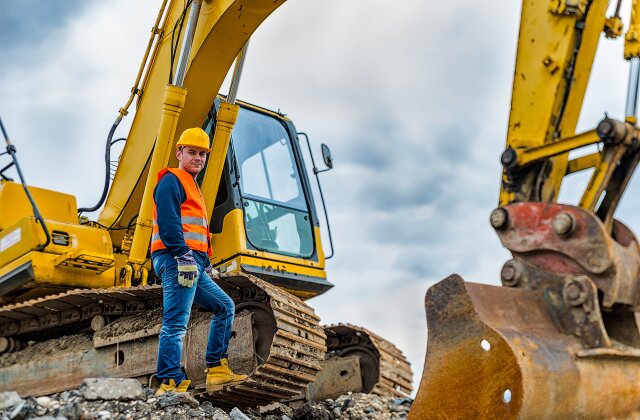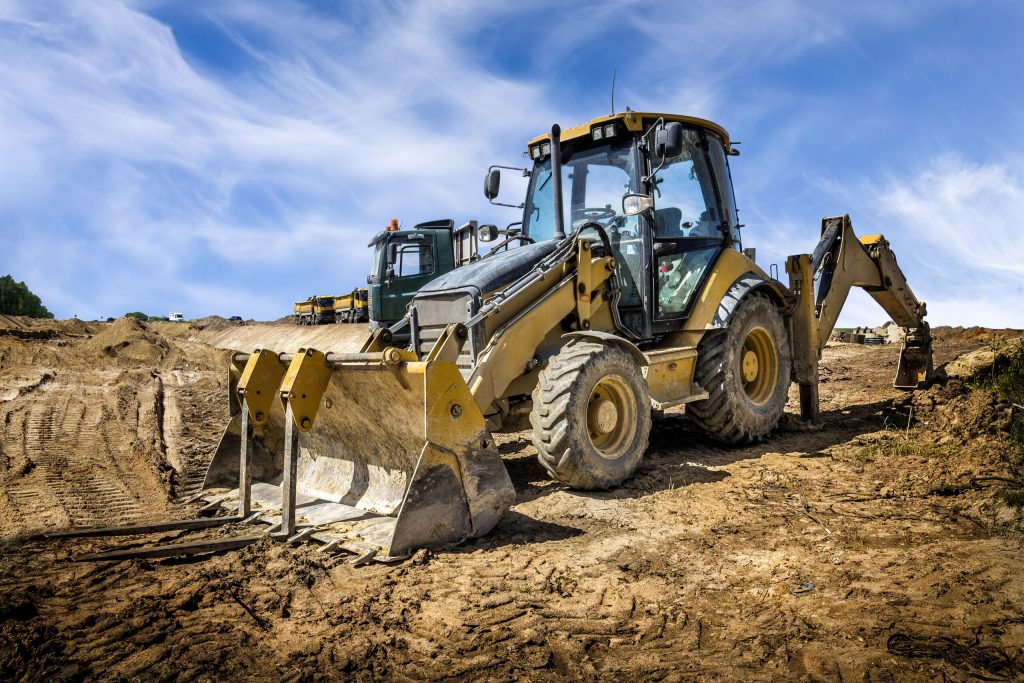
Heavy Equipment Operator: Mastering Precision and Power in Construction and Industry 2024
Introduction to Heavy Equipment Operators
Welcome to the dynamic world of heavy equipment operators, where precision meets power in the heart of construction and industry. These skilled professionals are the backbone of major projects, maneuvering massive machinery with finesse and expertise. Join us as we delve into the exciting realm of heavy equipment operation and discover what it takes to master this essential role.
The Role of Heavy Equipment Operators in Construction and Industry
Heavy equipment operators play a crucial role in the construction and industrial sectors. They are the skilled professionals responsible for operating heavy machinery like bulldozers, excavators, cranes, and loaders to move materials, dig trenches, clear debris, and more. These operators ensure that construction projects run smoothly and efficiently by maneuvering these powerful machines with precision.
In construction sites, heavy equipment operators work closely with other team members such as project managers, engineers, and laborers to achieve project goals within set timelines. Their expertise in handling complex machinery is essential for completing tasks safely and effectively. In industries like mining or forestry, these operators also contribute significantly to operations by transporting materials or products.
The role of a heavy equipment operator requires not only technical skills but also a keen understanding of safety protocols to prevent accidents on-site. They must be detail-oriented individuals who can follow instructions accurately while adapting quickly to changing conditions at work. With their expertise in operating specialized equipment, they are indispensable assets in various construction projects and industrial settings.
Required Skills and Qualifications
To excel as a heavy equipment operator, possessing the right skills and qualifications is pivotal. A keen eye for detail and precision is essential when operating large machinery in construction or industrial settings. Being able to interpret blueprints and understand project plans is crucial for executing tasks accurately.
Physical strength and stamina are also key requirements as operating heavy equipment can be physically demanding. Good hand-eye coordination and spatial awareness play a significant role in maneuvering these powerful machines safely and efficiently.
Having a solid understanding of safety protocols and procedures is non-negotiable to prevent accidents on-site. Communication skills are vital for effectively coordinating with team members and following instructions from supervisors.
In addition to technical skills, problem-solving abilities are highly valued in this profession as challenges may arise during operations that require quick thinking to resolve. Continuous learning and staying updated on industry trends ensure that operators remain competent in their roles.
Training and Certification Options
Embarking on a career as a heavy equipment operator requires specialized training and certification to master the intricate machinery used in construction and industrial settings. Various options are available for individuals looking to acquire the necessary skills to operate heavy equipment safely and efficiently.
Training programs typically cover topics such as equipment operation, safety protocols, maintenance procedures, and site management. These courses provide hands-on experience with different types of heavy machinery under the guidance of experienced instructors.
Certification is often obtained through recognized organizations that set industry standards for proficiency in operating specific types of equipment. Holding a valid certification demonstrates competence and adherence to safety regulations, making operators more attractive to employers seeking skilled professionals.
Whether through vocational schools, community colleges, or apprenticeship programs, aspiring heavy equipment operators have access to diverse training avenues tailored to their learning preferences and career goals. By investing time and effort into formal education and certification processes, individuals can enhance their expertise in handling powerful machines crucial to modern construction projects.
Job Opportunities and Salary Expectations
When it comes to job opportunities for heavy equipment operators, the construction and industrial sectors offer a wide range of positions. From operating excavators and bulldozers on construction sites to handling cranes in manufacturing plants, there is no shortage of demand for skilled professionals in this field.
The salary expectations for heavy equipment operators can vary depending on factors such as experience, location, and specific job responsibilities. On average, entry-level operators can expect to earn a competitive wage that increases with time and expertise. Additionally, overtime pay may also be available for those willing to work extra hours or on weekends.
With the growing infrastructure projects worldwide and advancements in technology driving the need for specialized operators, the outlook for job opportunities in this field remains promising. As industries continue to expand and develop, so do the prospects for those trained in operating heavy machinery.
Advancements in Technology for Heavy Equipment Operators
Advancements in technology have revolutionized the way heavy equipment operators work in construction and industry. With the introduction of GPS systems, operators can now accurately navigate job sites with precision. This technology allows for efficient grading and digging while minimizing errors.
Telematics systems are another game-changer, providing real-time data on machine performance and maintenance needs. Operators can monitor fuel consumption, track equipment usage, and schedule maintenance tasks more effectively. This helps prevent breakdowns and ensures optimal performance on site.
The integration of cameras and sensors on heavy machinery enhances safety by providing operators with better visibility of their surroundings. These technologies help mitigate blind spots and improve overall job site awareness.
Remote operation capabilities allow operators to control machinery from a safe distance, reducing risks in hazardous environments. This innovation not only prioritizes operator safety but also increases productivity by enabling multitasking during operations.
As technology continues to evolve, heavy equipment operators must adapt to these advancements to stay competitive in the industry. Keeping abreast of technological developments is crucial for maximizing efficiency and ensuring successful project outcomes without compromising safety standards.
Safety Measures for Heavy Equipment Operation
Safety is paramount in the world of heavy equipment operation. Before starting any task, operators must conduct a thorough inspection of their equipment to ensure it’s in optimal working condition. This includes checking for any leaks, loose parts, or worn-out components that could pose a safety risk.
Operators should always wear proper personal protective equipment (PPE) such as hard hats, gloves, and steel-toed boots while operating heavy machinery. Maintaining clear communication with other workers on-site through hand signals or radios is essential to prevent accidents and ensure smooth operations.
Adhering to all safety guidelines and regulations set by the Occupational Safety and Health Administration (OSHA) is crucial for every heavy equipment operator. Proper training on how to handle emergencies such as equipment malfunctions or sudden changes in weather conditions can save lives.
Regularly attending refresher courses on safety protocols and best practices can help operators stay updated on industry standards and technologies. It’s important for operators to prioritize their well-being and that of others around them by following strict safety measures at all times during their work shifts.
Challenges Faced by Heavy Equipment Operators
Operating heavy equipment comes with its fair share of challenges that operators need to navigate daily. One significant challenge is dealing with unpredictable weather conditions, which can impact job site safety and efficiency. From scorching heat to torrential rain, operators must adapt quickly to ensure work continues safely.
Another common challenge is the constant pressure to meet tight deadlines while maintaining precision and accuracy. This requires excellent time management skills and the ability to handle stressful situations calmly. Additionally, navigating complex job sites with obstacles like uneven terrain or limited space can test an operator’s spatial awareness and problem-solving abilities.
Heavy equipment operators also face the risk of fatigue due to long hours spent in noisy environments operating powerful machinery. Staying alert and focused throughout the day is essential for preventing accidents and ensuring productivity. Moreover, working collaboratively with other team members on-site demands effective communication skills amid loud equipment noise.
Being a heavy equipment operator requires resilience, adaptability, and a commitment to safety in challenging circumstances.
Tips for Success as a Heavy Equipment Operator

Mastering the art of operating heavy equipment requires a combination of skill, focus, and dedication. To excel in this field, it’s crucial to prioritize safety above all else. Always conduct thorough pre-operation checks on your equipment to ensure everything is in proper working condition.
Maintain open communication with your team members and follow instructions carefully to avoid accidents or mishaps on the job site. Be proactive in seeking additional training or certifications to enhance your expertise and stay up-to-date with industry advancements.
Develop strong problem-solving skills to troubleshoot any issues that may arise during operation swiftly and effectively. Practice patience and precision when maneuvering large machinery to complete tasks accurately and efficiently.
Remember that continuous learning and honing your craft are key components of success as a heavy equipment operator. Embrace challenges as opportunities for growth, and always strive for excellence in every task you undertake.
Conclusion
Heavy equipment operators play a crucial role in the construction and industry sectors, utilizing their skills to operate heavy machinery with precision and power. Their expertise is essential for completing projects efficiently and safely. As technology continues to advance, heavy equipment operators must stay updated on the latest innovations to enhance their performance.
With the right skills, training, and certifications, individuals can pursue a rewarding career as a heavy equipment operator. Job opportunities are plentiful, with competitive salary expectations. However, challenges such as long hours and demanding work conditions may arise. By prioritizing safety measures and continuously improving their skills, operators can overcome these challenges.
Success as a heavy equipment operator requires dedication, attention to detail, and adaptability. By mastering the art of precision and power in operating heavy machinery, professionals in this field can excel in their roles. Being a skilled heavy equipment operator opens up opportunities for growth and advancement within the construction and industry sectors – making it an exciting career path for those who are up for the challenge! see more



